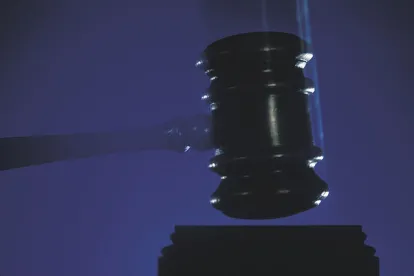The Seventh Circuit Court of Appeals has become the second federal court of appeals to weigh in on an important legal issue for employers in defending against expensive, increasingly common Fair Credit Reporting Act (FCRA) class action lawsuits. On August 1, 2017, the Seventh Circuit held that a plaintiff who alleged extraneous information in a background check disclosure form, without more, lacks the necessary Article III standing to maintain a lawsuit. Groshek v Time Warner Cable, Inc., No. 16-2711.
Despite its pro-employer holding, the decision is a good reminder that employers may want to review their background check forms and procedures for compliance with the FCRA, especially since (a) the Seventh Circuit is now somewhat at odds with the Ninth Circuit on the issue of standing and (b) lower-level courts across the country continue to arrive at different conclusions on FCRA standing and non-compliance.
Background
Over the course of a year and a half, plaintiff Cory Groshek submitted 562 employment applications to various employers, including Time Warner Cable, Inc. and Great Lakes Higher Education Corporation. The employers provided Groshek with a disclosure and authorization form informing him that a background check report (called a "consumer report" under the FCRA) could be procured and used for making an employment decision. The form also contained other information, including a liability release (e.g., "I hereby release from liability all persons and organizations furnishing references or other information”).
Groshek signed the disclosure and authorization form, and the employers requested and obtained background check reports on him from a consumer reporting agency.
Groshek filed separate lawsuits against Time Warner and Great Lakes, seeking statutory and punitive damages. He alleged the employers violated two FCRA provisions prohibiting employers from procuring a background check report unless (a) the employer provides a clear and conspicuous disclosure to the applicant, in a stand-alone document that consists solely of the disclosure, that a report may be obtained, and (b) the applicant authorizes in writing the procurement of the report.
Groshek alleged the disclosure form he signed violated the FCRA because it included a liability release and other extraneous information. He argued this violated the statutory requirement that the disclosure form must consist solely of the disclosure. He also alleged that, as a result of the disclosure violation, the employers failed to obtain a valid authorization.
The employers moved to dismiss, arguing that Groshek lacked Article III standing because he did not allege a concrete injury. Article III of the United States Constitution limits federal courts' jurisdiction to cases and controversies brought by litigants who demonstrate standing. One element of standing is that the plaintiff has suffered an "injury in fact." To establish an injury in fact, a plaintiff must show that he or she suffered an invasion of a legally protected interest that is “concrete and particularized” and “actual or imminent, not conjectural or hypothetical.” A bare procedural violation (a phrase relied upon extensively in the Supreme Court of the United States’ 2016 ruling on standing in Spokeo, Inc. v. Robins) divorced from concrete harm does not suffice. Groshek contended that he suffered concrete harm in the form of (a) informational injuries and (b) privacy injuries.
The district courts agreed with the employers’ argument that Groshek lacked Article III standing because he did not allege a concrete injury. Groshek appealed to the Seventh Circuit, which consolidated the separate, respective cases on appeal.
The Seventh Circuit’s Opinion
The Seventh Circuit Court of Appeals concluded that Groshek had alleged a statutory violation completely removed from any concrete harm or appreciable risk of harm.
The Seventh Circuit rejected Groshek’s arguments that he suffered an informational injury because he did not fail to obtain information and the FCRA does not seek to protect plaintiffs from receipt of a non-compliant disclosure. Citing FCRA legislative history, in two sentences likely to be quoted by both plaintiffs and employers alike, the Seventh Circuit outlined the purposes of the FCRA’s "stand-alone disclosure" section and the accompanying "authorization" section:
-
Stand-Alone Disclosure Section: “to decrease the risk of a job applicant unknowingly providing consent to the dissemination of his or her private information”;
-
Authorization Section: to “protect . . . consumer privacy by providing the job applicant the ability to prevent a prospective employer from procuring a consumer report, i.e., by withholding consent
The Seventh Circuit also rejected Groshek’s argument that he suffered a privacy injury because he signed the disclosure and authorization form. The authorization section does not implicate privacy interests.
The Seventh Circuit found that simply alleging that the disclosure forms contained extraneous information did not, by itself, give Groshek standing. As a result, his lawsuits were properly dismissed.
The Seventh Circuit took care to distinguish its current facts from those of a recent Ninth Circuit case, Syed v. M-I, LLC. In Syed, the Ninth Circuit held that allegations of extraneous language in a disclosure form did confer standing. Drawing all reasonable inferences in Syed's favor, the Ninth Circuit found that Syed was “confused by the inclusion of the liability waiver with the disclosure and would not have signed it had it contained a sufficiently clear disclosure." Unlike Syed, Groshek did not allege that he was confused by the form or would not have signed it if the disclosure had been more clear.
Key Takeaways
Review your background checks and processes. The decision is good news for employers in the Seventh Circuit because it may limit a "disclosure" FCRA class action. But employers will still want to ensure that their background check forms—both paper forms and electronic screens—comply with the FCRA. This Seventh Circuit case continues the patchwork, inconsistent case law on background check standing and willfulness, highlighting the compliance challenge for employers in various jurisdictions. A smart approach is to eliminate extraneous language from background check disclosures altogether.
Do not rely on forms, screens, or processes provided by third parties. The FCRA makes the employer responsible for compliance even if the forms and processes have been provided by a consumer reporting agency or background check provider. And although it may be surprising, third party forms and processes often do not comply. Therefore, employers cannot disregard compliance just because the forms or screens came from their consumer reporting agency or background check provider.






 />i
/>i
